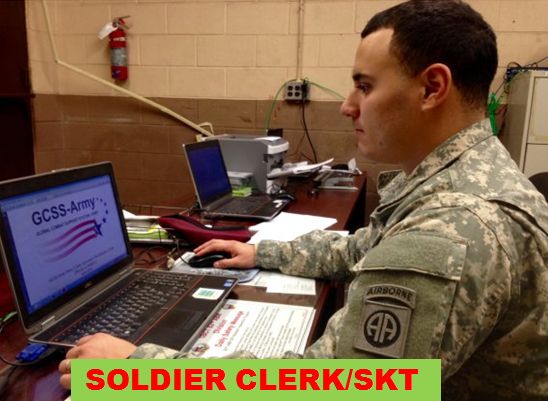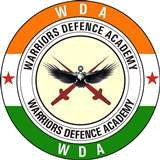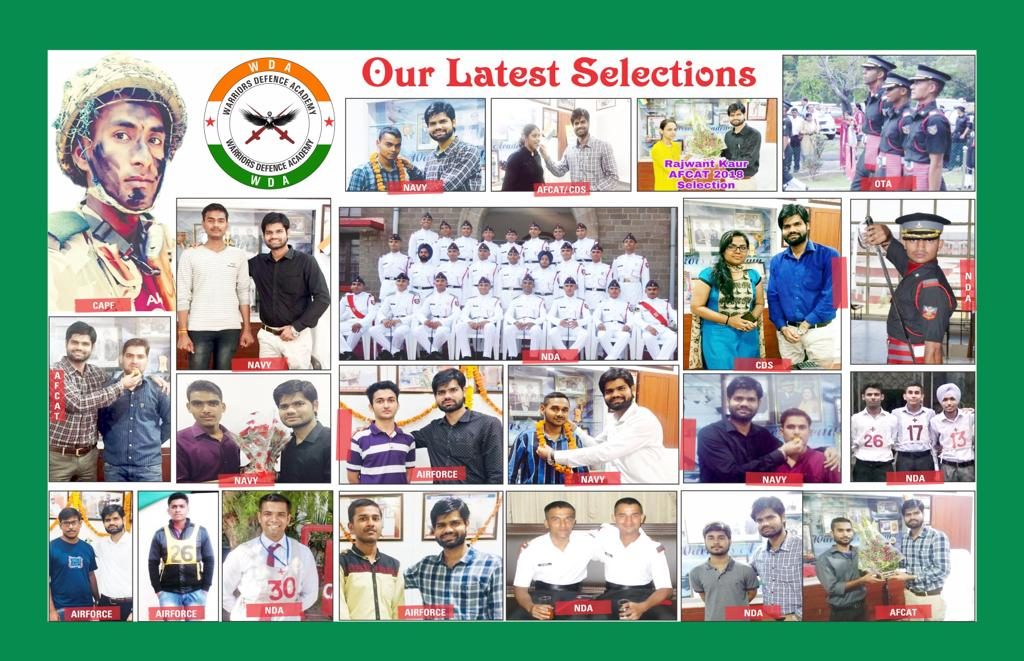Best Army Soldiers Clerk Coaching in Lucknow, India | Best Defence Coaching in Lucknow

Best Army GD Coaching in Lucknow
Mobile No.: +91-7081011964 | 08881002943 | 08840611547
Address: E1/5 Sector B, Near Power House, Aliganj Lucknow
E-mail-ID: [email protected]
Website: https://www.warriorsndaacademy.com/best-army-gd-coaching-lucknow/
Website: https://www.warriorsdefenceacademy.co.in/
SYLLABUS FOR SOLDIER CLERK/SKT
- PATTERN.
| Ser No | Subject | Questions | Marks | Min Pass Marks in each Part | Total aggregate pass mks |
| PART-I | |||||
| (a) | General Knowledge | 05 | 20 | 32 | 80 |
| (b) | General Science | 05 | 20 | ||
| (c) | Maths | 10 | 40 | ||
| (d) | Cmptr Science | 05 | 20 | ||
| PART-II | |||||
| (e) | General English | 25 | 100 | 32 | |
| Total | 50 | 200 |
- SYLLABUS.
GENERAL KNOWLEDGE
Abbreviations – National and International.
Sports – National and International.
Awards & Prizes – National awards, Gallantry awards, Nobel Prizes.
History – Important dates & battles in Indian and World
History and landmarks of Indian History, national movement.
Geography – Solar System Space exploration, The earth’s
principal peaks, Deserts, Rivers, Lakes and famous waterfalls, Geographical Tallest, Biggest, and Longest, etc.
Terminology – Geographical terms, Economic terms,
Astronomical terms, Legal terms, and Misc terms.
UNO
Indian Armed Forces.
Indian Towns, States, and Uts.
Institutions and Research Stations, International space Stations and Festivals of India and World.
Indian News Agencies and Dailies. Continents and Sub Continents.
Inventions and Discoveries.
Environment.
The Constitution of India.
Religious communities and Principal Languages. National and International Days.
International Organizations. Books and Authors.
The world of plants and animals. Current Affairs and “Who’s Who”.
GENERAL SCIENCE
Human Body – Food and nutrition, diseases and prevention, vitamins and their uses.
Question of General Science consisting of topics related to Physics, Chemistry, and Biology. based on fundamentals and day-to-day activities.
Medical Terms.
Scientific Terms.
Scientific and Research Institutes in India.
IO/Numeral Ability
The questions will be based on the ability of the candidates of age group ranging between 16 & 20 years.
Note The above syllabus is not a comprehensive list of topics pertaining to the subject. At times questions may be asked other than the above topics but definitely within the syllabus of CBSE.
MATHS
Arithmetic
Natural numbers, integers, fractions, rational/irrational numbers,
decimal fractions, HCF & LCM, square root, ratio and proportion,
percentages, averages, profit & loss, simple and compound interest.
Algebra
Addition, subtraction, multiplication, and division of algebraic expressions, HCF & LCM, factorization, simple equations, surds, indices, logarithms, Solution of linear equations of two and three variables.
Ratio and proportion meaning and standard form, roots and discriminant of a quadratic equation ax2 + bx + c = 0;
Mensuration Area and Volume
Area of four walls of a room, area of a circle, sector, and segment of a circle; surface area and volume of a cube, cuboids cone, cylinder, sphere.
Trigonometry
Trigonometric ratios of an angle A of a right-angle triangle, Simple applications of trigonometric ratios for solving problems of different types, Simple identities based upon the above.
Heights and Distances
Solution of simple problems of height and distance using trigonometrical tables and logarithmic tables.
Geometry
Lines and Angles
Different characteristics of lines and angles, parallel and perpendicular lines, inserting lines, some of angles and triangles, interior and exterior angles.
Triangles-properties, equality, congruency, and similarity with respect to sides and angles. Parallelogram-types and properties.
Circles – Properties, arc, chords, tangents, secants, and angles subtended by arcs.
Statistics
Histograms with given intervals, classification of data, frequency, frequency polygons, ogives. Mean, median, and mode of grouped and ungrouped data, problems related to statistical techniques.
Note: The above syllabus is not a comprehensive list of topics pertaining to the subject. At times questions may be asked other than the above topics but definitely within the syllabus of CBSE.
COMPUTER
Computer System :
Characteristics of a computer, Basic applications of a computer, components of a computer system – Central Processing Unit (CPU), Visual Display Unit (VDU), Keyboard.
Concept of Memory
Primary and Secondary Memory, RAM and ROM, Units of Memory – Byte, Kilobyte, Megabyte, Gigabyte, Terabyte.
Input / Output Devices
Mouse, Joy Stick, Scanner, Microphone, OCR, MICR, Light pen, Bar code Reader, Digital Camera, Printer, Speaker, Plotter.
Booting procedure and Storage Devices
MS –Windows :
The basic concept of an Operating System and its functions.
Introduction to Windows :
Using Mouse and moving icons on the screen, My computer, Recycle Bin, Task Bar, Start0menu and menu selection, running an application, setting system date and time, Windows Explorer to view files, folders, and directories, creating and renaming of files and folders, Opening and Closing of Windows Minimise, Restore and Maximise forms of windows, Basic components of a Window: Desktop, Frame, Title Bar, Menu Bar, Status Bar, Scroll Bars (Horizontal and Vertical), Using right button of the Mouse, Creating Shortcut, Basic Windows, Accessories: Notepad, Paint, Calculator, Wordpad.
MS Word
Introduction to a Word Processor, Creating and Saving a Document, Editing and Formatting a Document; Text Style (B.I.U), Font Type, Size, changing color, alignment of text; Formatting paragraphs with a line or paragraph spacing; adding headers and footers, numbering pages, using grammar and spell utilities, using subscript and superscript, inserting symbols, Print Preview, Printing a document, Inserting WordArt, Clipart and Pictures, Page setting, Bullets and Numbering, Borders and Shading, Format painter, Find and Replace, Inserting Tables: inserting, deleting-rows and columns, merging cells, splitting cells, using the auto format.
MS PowerPoint
Introduction to presentation Graphics, understanding the concept of slides shows, Basic elements of a slide, Different types of slide Layouts, Creating and saving a presentation, Different views of a slide: Normal view, Slide Sorter view and Slide Show, Editing and Formatting a slide: Adding Titles, Subtitles, Text, Background, Watermark; Headers and Footers, Numbering Slides.
MS Excel
Introduction to Spreadsheets, Concept of Worksheets and workbooks, Creating and Saving a worksheet, Working with a spreadsheet: entering numbers, text, date/time, series using AutoFill, Editing and formatting a worksheet including changing color, size, font, alignment of text, inserting or deleting cells, rows, and columns.
Note: The above syllabus is not a comprehensive list of topics pertaining to the subject. At times questions may be asked other than the above topics but definitely within the syllabus of CBSE.
ENGLISH
COMPREHENSION GRAMMAR
- Parts of Speech.
- Article
- Noun and Pronoun.
- Adjective.
- Preposition.
- Conjunction and modals.
Verbs
Tenses :
Present/past forms Simple/continuous form Perfect forms
future time reference
Sentence Structure
Type of Sentences
Affirmative/interrogative sentences. Use of Phrases.
Direct and Indirect speech.
Active and Passive Voice
Other Areas
- Idioms and Phrases.
- Synonyms and antonyms.
- One word substitution.
Note The above syllabus is not a comprehensive list of topics pertaining to the subject. At times questions may be asked other than the above topics but definitely within the syllabus of CBSE.

